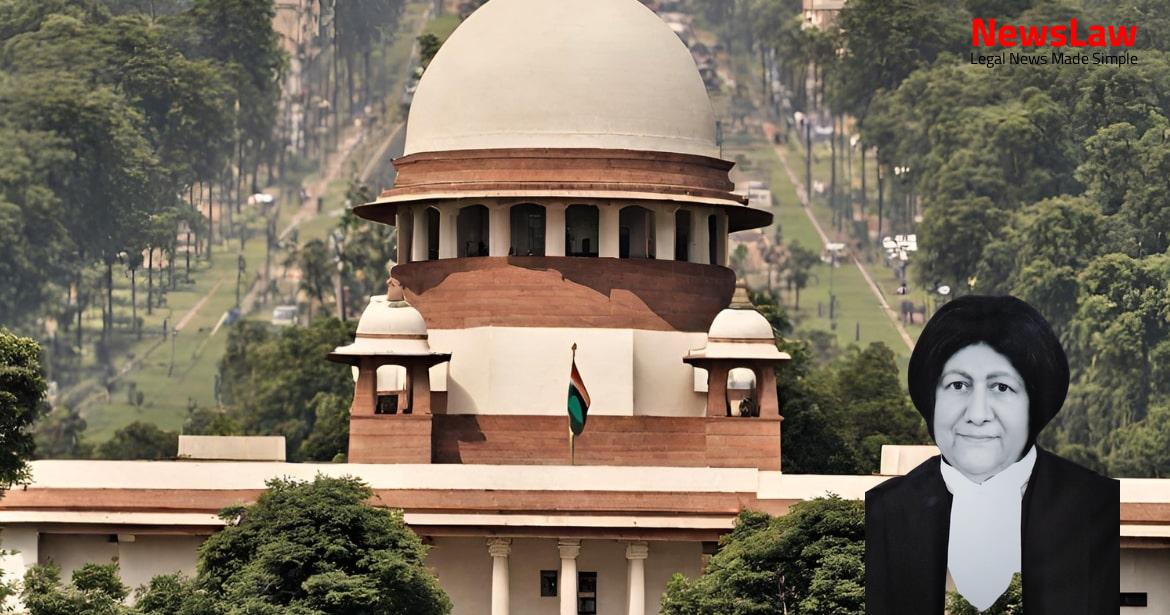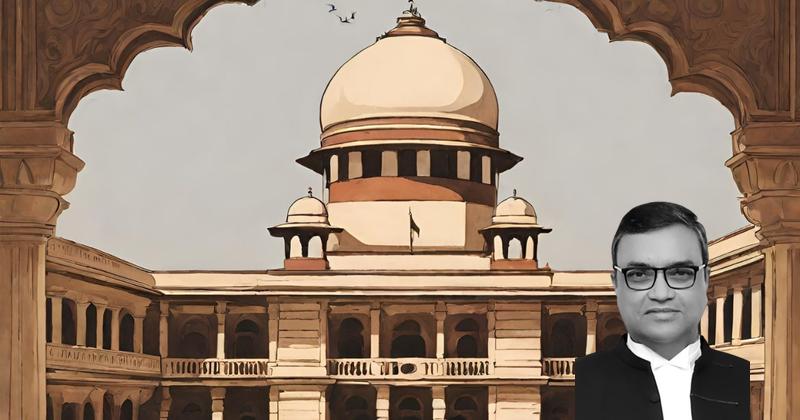In a significant legal ruling, the Supreme Court of India delivered its judgment on an NDPS Act violation case involving the Appellant and the State of India. The Court upheld the 10-year sentence imposed on the Appellant, emphasizing the nuances of the law. The case sheds light on key aspects of the NDPS Act and its enforcement in such circumstances.
Facts
- The appellant was found with 10 bags of poppy straw, a narcotic drug, in the truck.
- The FIR was registered at Police Station Singoli, District Neemuch on 15.07.2000.
- The defence stated that the goods were being legally transported under a valid license issued by the District Excise Officer.
- The license included names of cultivators from specific villages.
- The High Court affirmed the conviction of the Appellant under the NDPS Act with a 10-year sentence and a fine of Rs.1 lakh.
- Head Constable Shivshankar discovered the truck parked outside a village and found the narcotic drug in it.
- The Appellant produced a permit for transporting the poppy straw from specific villages on a specified date.
- Due to rain, the truck could not enter the villages for collection.
- Samples of the seized poppy straw were sent for chemical examination at the Forensic Science Laboratory.
- A charge sheet was filed against the Appellant who denied committing any offence.
- The Trial Court convicted the Appellant under Section 8 read with Section 15 (c) of the NDPS Act and sentenced him to 10 years of imprisonment and a fine of Rs.1 lakh.
- The truck seized was held liable for confiscation under Section 60(3) of the NDPS Act.
- The High Court affirmed the conviction and sentence of the Appellant.
- The Defence argued that the Prosecution failed to prove the offence and shifted the burden of proof to the Appellant.
- The Defence contended that any violation was under Section 26 of the NDPS Act, not Section 15.
- The Trial Court found the Appellant guilty of the offence under Section 8 read with Section 15 (c) of the NDPS Act based on the poppy straw seizure.
- The Trial Court ordered confiscation of the vehicle and its sale by public auction after the appeal period expired.
Also Read: Supreme Court Ruling on Dowry Harassment and Suicide Case
Issue
- The issue of whether the seized material is poppy straw or Dodachura was examined.
- The accused’s involvement in any offence related to the seized substance was considered.
- The court analyzed the evidence to determine the nature of the seized substance and the accused’s involvement in any illegal activities.
Also Read: Case of Technical Equipment Officer Appointment Criteria Dispute
Arguments
- Petitioner argued that transportation of poppy straw was from villages mentioned in the licence but loading took place from a parked lorry due to rain.
- Petitioner contended that prosecution did not show contraband was purchased and loaded from a village not in the licence.
- Only offence under Section 8 read with Section 26 of the NDPS Act is argued to have been made out for violating licence conditions.
- Petitioner has already served 8 years sentence and is currently on bail, requesting a lenient view from the Court.
- State argued that seizure of poppy straw was admitted by the Petitioner, thus no need for further proof by prosecution.
- The Appellant’s defence is that the transportation was based on a valid licence and it was his burden to prove that the poppy straw was purchased from individuals listed in the licence.
- Section 8, 15, and 26 of the NDPS Act were discussed by the Appellant to show that Sections 15 and 26 have different applications.
Also Read: Supreme Court Judgement on Transfer of Mining Environmental Clearances
Analysis
- Section 26 of the NDPS Act deals with punishment for certain acts by a licensee or his servants.
- The section outlines various actions that constitute a breach of license conditions and the corresponding penalties.
- These actions include failure to maintain accounts, failure to produce license on demand, keeping false accounts, or acting in breach of license conditions.
- The punishment prescribed for such breaches can include imprisonment for up to three years, fines, or both.
- For contravention of a license for transportation of poppy straw involving a commercial quantity, the punishment is more severe with imprisonment for 10 to 20 years and fines of one to two lakh rupees.
- The Trial Court framed issues under Section 8 read with Section 26 of the Act, focusing on these provisions.
- The issues included whether there was a failure to comply with license conditions, maintain accounts, produce license on demand, or act in breach of license conditions.
- Appellant failed to prove there was rain on the day of the incident.
- Appellant did not summon any defense witnesses as initially stated.
- Appellant admitted the seizure of poppy straw from a truck stationed near village Palasiya.
- Appellant’s truck was 18 kilometers away from the village mentioned in the license for loading poppy straw.
- Courts justified in convicting under Section 8 read with Section 15 of the NDPS Act.
- Relevant sections 15 and 26 of the NDPS Act discussed for adjudication.
- Various punishments under NDPS Act for contraventions regarding poppy straw.
- Appellant’s defense was that transportation was legal based on a valid license due to rain preventing entry into villages.
- Trial Court’s conclusion on guilt under Section 8 read with Section 15 of the NDPS Act remains unchallenged.
- Violation of license conditions can be punished under Section 26 (d) of the NDPS Act for a maximum of three years.
- Section 26 (d) is applicable for breaching license conditions without a prescribed penalty elsewhere in the Act.
- For contravention involving commercial quantity, Section 15 mandates a minimum of 10 years of rigorous imprisonment.
- The judgment in Criminal Appeal No. 318 of 2005 cannot be directly applied to the present case.
- Despite the Appellant serving 8 years out of a 10-year sentence and being on bail since 2010, the minimum sentence under Section 15 (c) of the NDPS Act cannot be reduced.
- The Court dismissed the appeal based on these considerations.
Decision
- The Appellant is directed to surrender within four weeks to serve the remaining sentence.
- The Appellant must undergo the remaining portion of the sentence.
Case Title: GANGARAM Vs. THE STATE OF MADHYA PRADESH
Case Number: Crl.A. No.-001510-001510 / 2010



